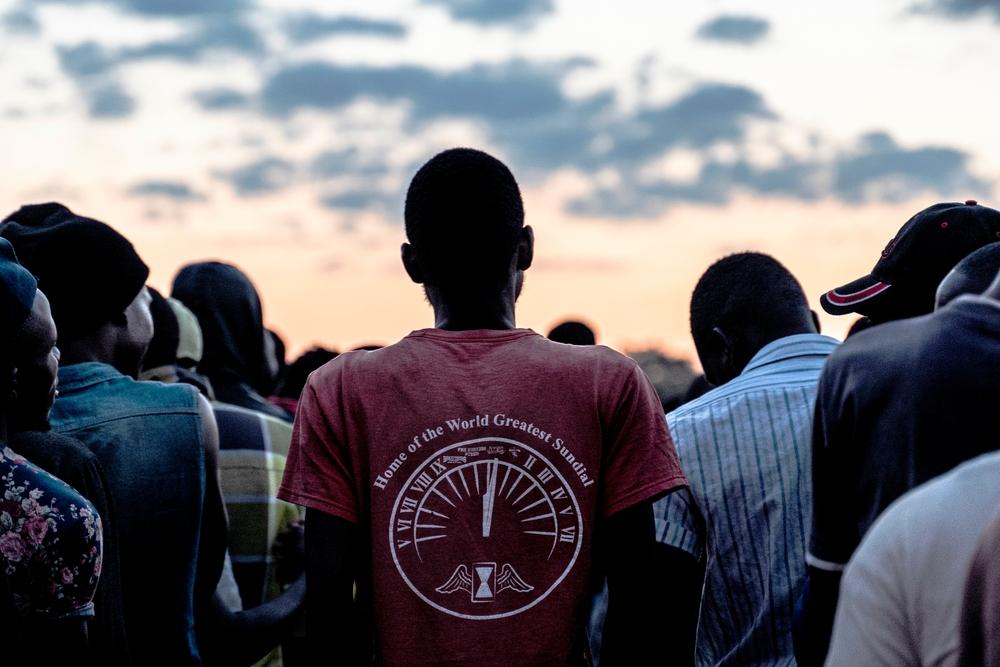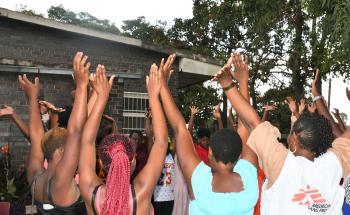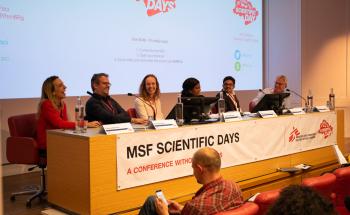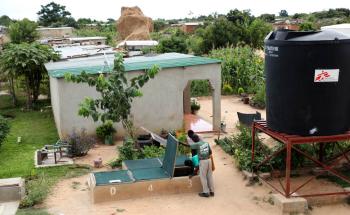In 2022, the MSF's Beitbridge project opened a sub-office at Tongogara Refugee Camp (TRC) located in rural Chipinge District, Manicaland Province, South-East of Zimbabwe where approximately 15,000 refugees are living. More than 85% of the population are from the Great Lakes Region (predominantly from the Democratic Republic of Congo), Mozambique, and the other smaller percentage from Somalia and South Sudan.
Most of the camp residents faced many traumatic events in their home countries due to the ongoing conflicts, which was the reason they fled from their homes. However, their distress coming from past traumatic events has not been fully addressed. In addition, life in the camp rarely gives them hope for the future – as chances of resettlement or integration are limited for various reasons.
As a result, most have become long stayers without having a lot of livelihood activities, which causes distress, and a feeling of hopelessness for some people. While the need for mental health services is high, the MSF assessment team noted people’s natural resilience by being positive and innovative in making their life more cheerful.
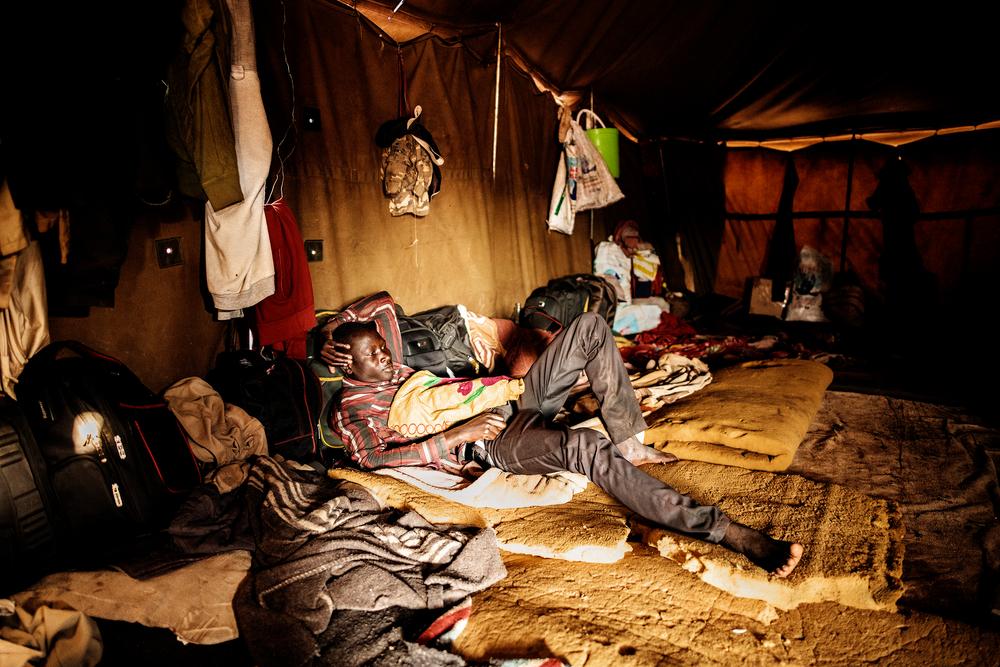
Freidrick (47), Congolese: Beaten, arrested and tortured but hopeful
“Tongogara Refugee camp has been our home since 2009.
In 2003, a tribal conflict broke out in Katanga, in the Democratic Republic of the Congo. The conflict displaced me and my family from my country.
I was beaten, arrested, and tortured when I tried to recover some of our property and moved to Goma with my wife and son to join other relatives. In 2007, we moved to Kibumba at the border of DRC and Rwanda to start a new life with my family. I then started my carpentry work and life was going on well.
In 2008, rebels attacked DRC and entered through Kibumba, our new home. I had settled well with my family. Suddenly, everything changed. It all started when the rebels asked me to do their carpentry work. I agreed thinking that they would pay me. When I asked for my payment, they beat, tortured and sodomised me. My wife got raped by five men whilst I was looking and they physically abused my son. They ravaged our home.
To make it worse, the rebels put some powder in my eyes and arrested me. I could not see properly, until now, my eyes are still affected.
My wife and son managed to escape during the fiasco as the rebels were focusing on torturing me.
Whilst arrested, I got sick and I was convinced I was going to die.
As time passed, I lost all the hope of being alive and to think that they separated me from my family, I got shattered.
Fortuitously, a former village mate who had joined the rebel group helped me to escape and gave me some food. I regained some strength. I had to be strong to run away for my life.
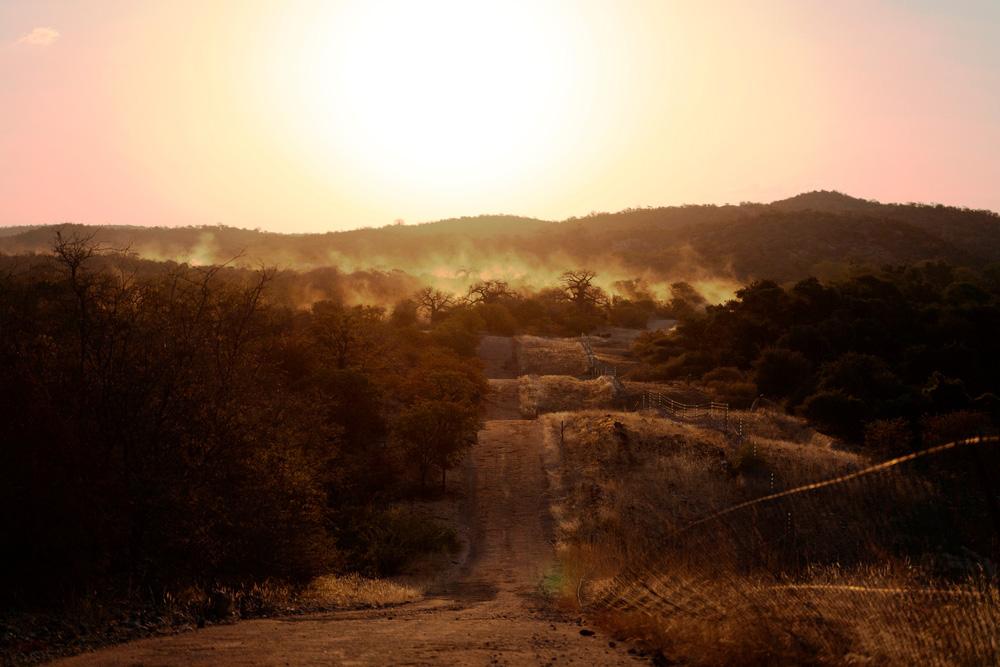
When I reached Goma, I wanted to proceed to Zambia. This is the day I wanted to run away from my country. I did not want to hear about the DRC anymore. I met a cross-border truck driver who assisted me to move from the DRC. The truck was travelling to South Africa, and the driver opted to leave me in Harare, Zimbabwe.
Upon arrival in Harare, the driver took me to the clinic as my health was deteriorating because of the abuse I got in the DRC.
I got medical attention at a hospital in Harare. I got reports that there were some refugees from the DRC in the same hospital I was admitted. After 10 days in the hospital, I met my wife and son who were admitted to the same hospital. It was a pleasant surprise. I never expected that.
In February 2009, after recovering, the government of Zimbabwe moved us to Tongogara Refugee Camp. The camp is our new home since 2009.
In order to occupy my mind and earn a living, I resuscitated my carpentry passion and opened hardware called Good Morning. It is a good morning to new life.
I can now provide for my family, supplementing the pay-outs that we are given by the government. I am also a Pastor in the camp, preaching hope to those in distress. My wife is also a hairdresser and has clients from the camp and in the nearby community.
Despite some chronic pain I have because of the abuse in the DRC, I am happy that I was reunited with my family and living in peace.
I am now a father of three. I am grateful to God for rescuing my family.”
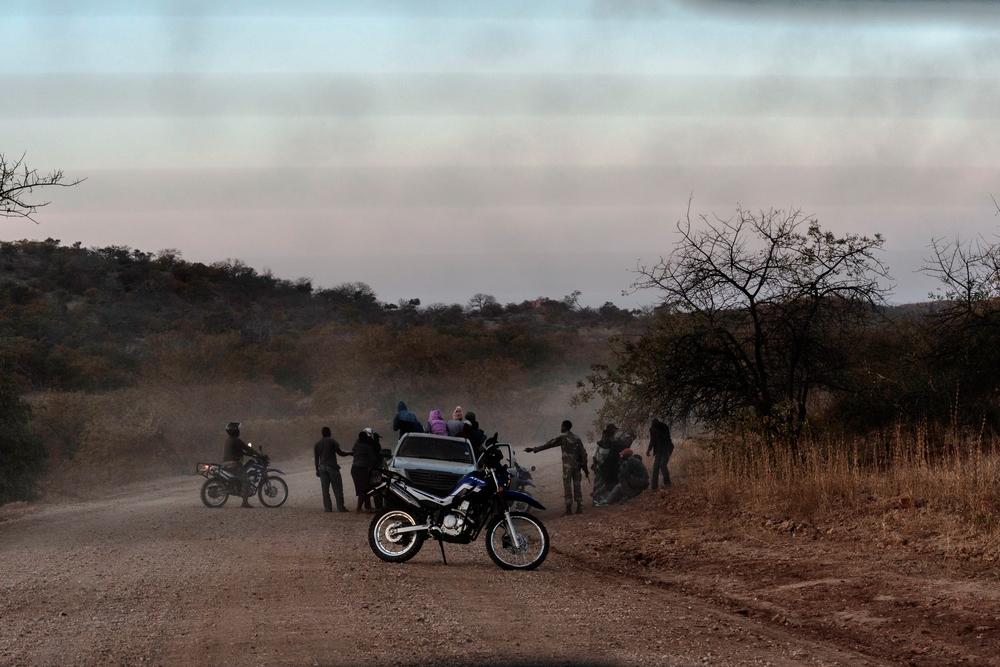
Lucia (19), Mozambican: I am still traumatised!
“I came to stay in Tongogara Refugee Camp when I was 14 years old. I am now 19 years and have two children.
My family had to flee war in Mozambique in 2017 and came to settle in Zimbabwe. I am the firstborn in a family of 6. My parents are taking care of other grandchildren, making us 14 in the family.
We were transported from Mozambique to Zimbabwe by buses and were given refuge at Tongogara Refugee Camp.
Whilst in the camp, I started attending school and at 16 years; I was in grade 4. I was behind in education because of the war. At school, I met an 18-year-old boy who was in grade 7.
I became a mother of one at 16 years, in a space of a year, I was a mother of two. The boy then ran away from the camp to deny the responsibility of taking care of the children. It devastated me.
My parents were angry with me but accepted to continue staying with me and my children. There was nowhere else to go as the camp is our only home now.
My parents are taking care of the children, but it is difficult. The food is not enough at our house as we are many. The children want to eat a lot.
I do piece jobs in the fields to get income to buy food for the children. I regret getting pregnant. I should have focused on my education and life.
I cannot go back to Mozambique. I saw people dying. I am still traumatized, and it is better to continue staying in the camp.
The feeling of rejection coupled with the trauma from abuse from war made me decide to flee from our home. I felt dirty, rejected, and useless. My children and I fled from Lubumbashi. I was not sure where I was going, neither did I have enough money for this journey.Nicoletta, 42, Congolese
Nicoletta, 42, Congolese: I was gang raped
This year marks 11 years of staying at Tongogara Refugee Camp.
I came here with my four children when I fled the war in the Democratic Republic of Congo. My husband could not come with us as he was in hiding.
I am now 42 years old. The trauma of being gang-raped by the four militiamen on two different occasions when they broke into our home in the presence of my children is still fresh.
Culturally, in my country when a woman has intercourse with another man even through rape, her in-laws do not accept her. The feeling of rejection coupled with the trauma from abuse from war made me decide to flee from our home. I felt dirty, rejected, and useless. My children and I fled from Lubumbashi. I was not sure where I was going, neither did I have enough money for this journey.
I am now idle in this camp. The camp is the only place that I know of. I am terrified to travel outside the camp. I wish I could find a job, unfortunately as a refugee, I do not have the right to work in Zimbabwe.Nicoletta, 42, Congolese
We lost everything that we owned in this life back home. I lost my career. I was working as a counsellor for a child protection organisation. What pains me most is that everything I worked for over the years was destroyed, a sad reality for me.
I sold the jewellery I had to get transport money to go to Harare Zimbabwe. I did not want to live in the DRC anymore.
It took me time to adapt to the camp life. I could not believe that this is the new life I am living with my children. We lived a good life in the DRC.
I am now idle in this camp. The camp is the only place that I know of. I am terrified to travel outside the camp. I wish I could find a job, unfortunately as a refugee, I do not have the right to work in Zimbabwe.
However, I enjoy having counselling sessions with young mothers in the camp, giving them hope as they feel that their life is bleak. It is therapeutic for me.
